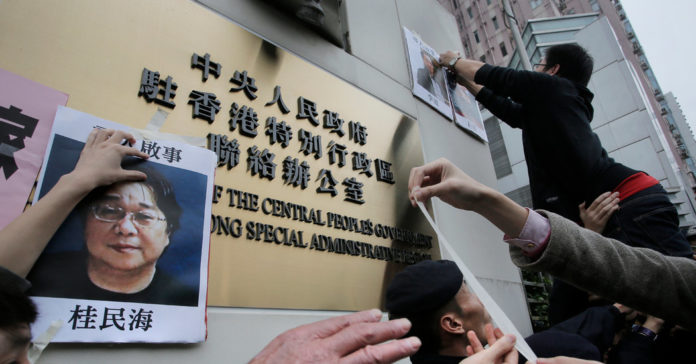HONG KONG — A court in China has sentenced to 10 years in prison a Hong Kong-based book publisher with Swedish citizenship whose secretive detention in China ignited international controversy. The sentence was quickly denounced by his supporters as the latest example of the Chinese government’s resolve to smother criticism from abroad.
The bookseller, Gui Minhai, is a Chinese-born Swedish citizen who was taken under mysterious circumstances from his home in Thailand in 2015. He has been one of the prominent targets in a campaign by China’s Communist Party to silence dissent even beyond the mainland.
Mr. Gui, 55, was put on trial in January on charges of providing intelligence overseas, the Ningbo Intermediate People’s Court said in a brief notice announcing the verdict. It said he had resumed his Chinese citizenship in 2018, meaning he would give up his Swedish citizenship, and that he did not wish to appeal. The details could not be independently verified.
The sentence was the latest turn in a murky and long-running effort to clamp down on a market for sometimes salacious books on the Chinese leadership that are published in Hong Kong. Such works could not be published in mainland China, but found a booming market among mainland visitors to Hong Kong, a semiautonomous part of China with strong press freedoms.
Mr. Gui was the co-owner of Mighty Current Media, a Hong Kong imprint that had five employees who were held in the mainland, including one, Lee Bo, who was apparently taken off the streets of Hong Kong. All except Mr. Gui were eventually released after giving confessions that were broadcast by Chinese state media.
Most kept silent, but one, Lam Wing-kee, went public after returning to Hong Kong in 2016. He described lengthy isolation and intimidation in an effort to get him to reveal names of writers and customers. He said his confession was written by the authorities, and he had no choice but to deliver it. He later moved to Taiwan, citing fears of growing Chinese influence and control over Hong Kong.
Mr. Lam called Mr. Gui’s sentence “ridiculous.”
“How could it be possible to kidnap and sentence people just because they produced a few books?” he said in an interview.
Mr. Lam said the sentence was a warning that the Chinese government would strictly punish acts of resistance.
“A few of my colleagues didn’t get sentenced,” he said. “This is probably about them, execute one to warn a hundred.”
Source : Nytimes













